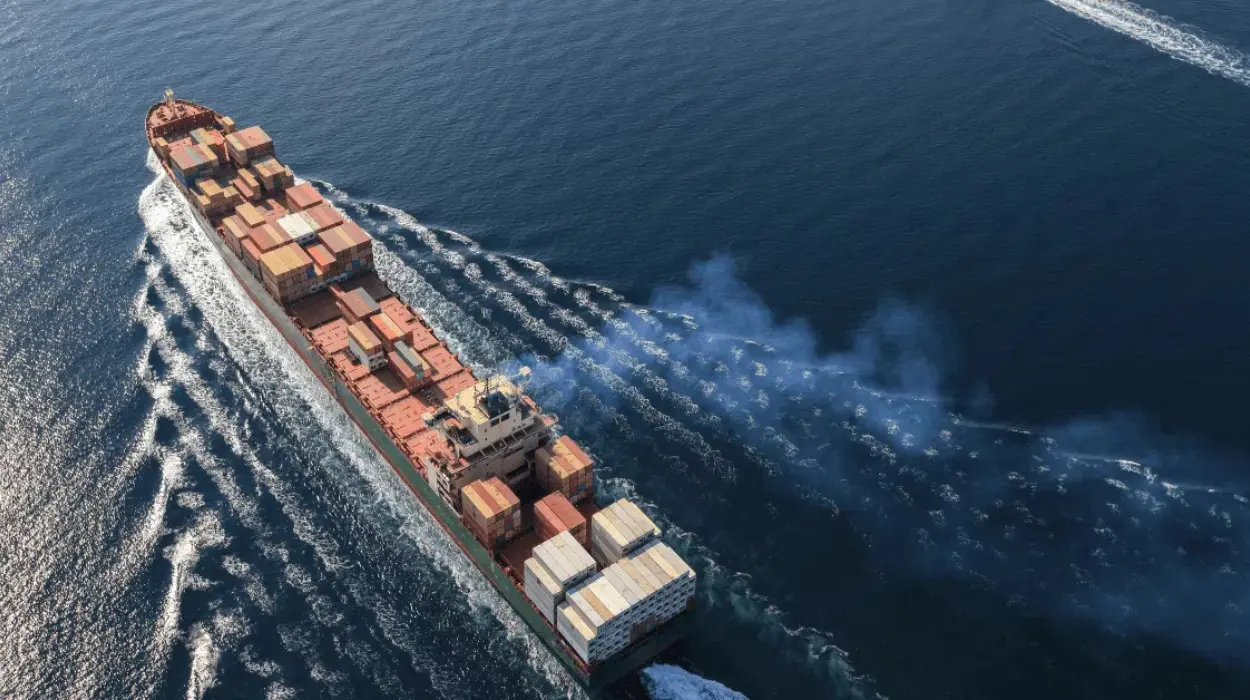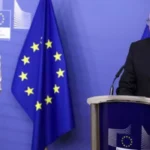A coalition of clean shipping groups has urged the European Union (EU) to take more robust action in tackling climate change within the shipping sector. The call for more aggressive climate policies comes in the wake of the International Maritime Organization’s (IMO) new climate regulations, which the coalition of non-profits and clean energy organizations believes are insufficient to meet global climate goals.
In a letter addressed to the European Commission and the EU Presidency, the coalition of 82 stakeholders from the maritime and green hydrogen industries expressed their disappointment with the IMO’s recent climate measures. The letter was signed by several leading environmental groups and industry alliances, including the SASHA Coalition, Zero Emissions Ship Technology Association (ZESTAs), Nature and Biodiversity Conservation Union (NABU), Carbon Market Watch, Green Hydrogen Organisation, ZERO – Associação Sistema Terrestre Sustentável, and Cittadini per l’aria onlus.
Read Also : EU Challenges U.S. Tariffs at WTO, Proposes €95 Billion in Retaliatory Measures
IMO’s New Measures Criticized for Falling Short
The group’s criticism centers on the IMO’s newly adopted regulations, which were agreed upon at the Marine Environment Protection Committee (MEPC 83) meeting in April 2025. Despite the IMO’s claim that the measures were “historic,” the coalition believes the actions are insufficient to meet the critical 1.5°C target set by the Paris Agreement, as well as the IMO’s own climate objectives outlined in its 2023 strategy.
According to the coalition, nearly 90% of shipping emissions remain unaccounted for by the new policies, and there are no significant financial penalties for polluters. This lack of robust enforcement, the group argues, limits the incentives for moving away from fossil fuels and hampers the funding required to support the transition to cleaner energy sources.
The coalition warned that the shipping sector is on track to miss its 2030 emissions targets, with only a modest 10% reduction in emissions expected, far below the 30% reduction outlined in the IMO’s 2023 Strategy. This raises serious concerns about the industry’s ability to play a meaningful role in achieving net-zero emissions by mid-century.
The Need for Green Hydrogen and E-Fuels
One of the major points of contention is the IMO’s failure to adequately support green hydrogen and e-fuels like e-ammonia and e-methanol, which are widely regarded as the only viable options for achieving net-zero emissions in shipping. The coalition emphasizes that these fuels have the lowest lifecycle emissions and are essential for the long-term sustainability of the maritime industry.
However, the group acknowledges that while these alternative fuels hold great promise, they still face significant challenges, including high production costs and limited supply capacity. The coalition is particularly concerned that the IMO’s current measures may inadvertently encourage the use of polluting alternatives like liquefied natural gas (LNG) and biofuels. These fuels, they argue, could delay the necessary transition to genuinely clean energy solutions.
EU Must Take Action to Fill Policy Gaps
To address the gaps left by the IMO’s regulations, the coalition is calling on the EU to implement a comprehensive policy framework that will accelerate the growth of the green shipping sector and enhance Europe’s industrial competitiveness. The proposed policy roadmap includes four key actions:
- 2025: Introduce financial support for e-fuel producers through the upcoming Sustainable Transport Investment Plan (STIP).
- 2026: Expand the EU Emissions Trading System (ETS) to cover more maritime emissions and use the funds generated to develop e-fuels.
- 2027: Strengthen the FuelEU Maritime regulations by setting legally binding targets for e-fuel adoption across the sector.
- Advocate for stronger IMO regulations that promote the use of e-fuels and impose penalties for pollution, aligning with the EU’s Clean Industrial Deal goals.
Experts Urge EU to Act Before It’s Too Late
Aurelia Leeuw, Director of EU Policy at the SASHA Coalition, expressed concerns that without further action from the EU, the shipping industry will struggle to adopt green hydrogen and other clean technologies at scale. Leeuw highlighted the importance of the EU nurturing this emerging sector, rather than neglecting it, to ensure a sustainable future for green shipping.
Lukas Leppert from NABU also criticized the IMO’s limited steps, calling it a missed opportunity to make a significant impact on emissions reduction. He urged the EU to take corrective action, noting that Europe has long been a leader in climate policy and should continue to champion the green maritime transition.
Madadh MacLaine, Secretary General of ZESTAs, warned that the IMO’s decision could result in further investment in unsustainable fuel infrastructure, which would only exacerbate the industry’s environmental problems. She called on the EU to support science-based fuel lifecycle analyses and to set stricter targets for fuel adoption.
Conclusion: A Call for Stronger EU Leadership
The coalition’s appeal to the EU underscores the urgent need for stronger climate policies in the shipping sector, especially in light of the IMO’s disappointing climate measures. While the IMO’s efforts were a step in the right direction, they were not enough to align with global climate goals or to ensure a sustainable future for the maritime industry. The EU has a critical opportunity to fill the policy gaps left by the IMO and to lead the way in developing the clean shipping technologies needed to achieve net-zero emissions.
This article is originally published on : marineinsight









